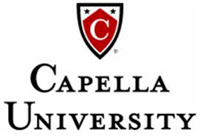What do they do?
Prepare customs documentation and ensure that shipments meet all applicable laws to facilitate the import and export of goods. Determine and track duties and taxes payable and process payments on behalf of client. Sign documents under a power of attorney. Represent clients in meetings with customs officials and apply for duty refunds and tariff reclassifications. Coordinate transportation and storage of imported goods.
Also known as:
Corporate Licensed Broker, Customs Broker
-
1.4%
Change
Ranks #51 in job growth rate790Job Openings
Ranks #19 in net job growth
Looking for colleges that offer a specific major? Use the College Match Tool to find your best-matched schools and discover your estimated Net Price!
- Bachelor's degree (40%)
- Master's degree (18%)
- Some college, no degree (18%)
- High school diploma equivalent (9%)
- Associate's degree (8%)
- Doctorate or Professional Degree (6%)
- Less than high school diploma (1%)
Most Popular Majors that prepare Customs Brokers
-
#1
-
Degrees Granted
121
-
Female Students
65
-
Male Students
56
-
Median Starting Salary
$44,450
-
-
#2
-
Degrees Granted
28
-
Female Students
24
-
Male Students
4
-
Median Starting Salary
$40,400
-
-
#3
-
Degrees Granted
5
-
Female Students
2
-
Male Students
3
-
Median Starting Salary
$40,400
-
People in this career often have these skills:
- Active Listening - Giving full attention to what other people are saying, taking time to understand the points being made, asking questions as appropriate, and not interrupting at inappropriate times.
- Reading Comprehension - Understanding written sentences and paragraphs in work-related documents.
- Writing - Communicating effectively in writing as appropriate for the needs of the audience.
- Speaking - Talking to others to convey information effectively.
- Critical Thinking - Using logic and reasoning to identify the strengths and weaknesses of alternative solutions, conclusions, or approaches to problems.
- Complex Problem Solving - Identifying complex problems and reviewing related information to develop and evaluate options and implement solutions.
People in this career often know a lot about:
- Transportation - Knowledge of principles and methods for moving people or goods by air, rail, sea, or road, including the relative costs and benefits.
- English Language - Knowledge of the structure and content of the English language including the meaning and spelling of words, rules of composition, and grammar.
- Administrative - Knowledge of administrative and office procedures and systems such as word processing, managing files and records, stenography and transcription, designing forms, and workplace terminology.
- Law and Government - Knowledge of laws, legal codes, court procedures, precedents, government regulations, executive orders, agency rules, and the democratic political process.
- Customer and Personal Service - Knowledge of principles and processes for providing customer and personal services. This includes customer needs assessment, meeting quality standards for services, and evaluation of customer satisfaction.
- Computers and Electronics - Knowledge of circuit boards, processors, chips, electronic equipment, and computer hardware and software, including applications and programming.
- Administration and Management - Knowledge of business and management principles involved in strategic planning, resource allocation, human resources modeling, leadership technique, production methods, and coordination of people and resources.
- Geography - Knowledge of principles and methods for describing the features of land, sea, and air masses, including their physical characteristics, locations, interrelationships, and distribution of plant, animal, and human life.
- Mathematics - Knowledge of arithmetic, algebra, geometry, calculus, statistics, and their applications.
People in this career often have talent in:
- Written Comprehension - The ability to read and understand information and ideas presented in writing.
- Deductive Reasoning - The ability to apply general rules to specific problems to produce answers that make sense.
- Oral Comprehension - The ability to listen to and understand information and ideas presented through spoken words and sentences.
- Oral Expression - The ability to communicate information and ideas in speaking so others will understand.
- Written Expression - The ability to communicate information and ideas in writing so others will understand.
- Near Vision - The ability to see details at close range (within a few feet of the observer).
- Speech Clarity - The ability to speak clearly so others can understand you.
- Information Ordering - The ability to arrange things or actions in a certain order or pattern according to a specific rule or set of rules (e.g., patterns of numbers, letters, words, pictures, mathematical operations).
- Category Flexibility - The ability to generate or use different sets of rules for combining or grouping things in different ways.
- Speech Recognition - The ability to identify and understand the speech of another person.
People in this career often do these activities:
- Oversee business processes.
- Coordinate logistics or other business operations.
- Pay charges, fees, or taxes.
- Calculate data to inform organizational operations.
- Coordinate regulatory documentation activities.
- Examine product information to ensure compliance with regulations.
- Update knowledge of legal or regulatory environments.
- Prepare documentation for contracts, transactions, or regulatory compliance.
- Advise others on legal or regulatory compliance matters.
- Estimate costs of goods or services.
- Monitor inventories of products or materials.
- Obtain documentation to authorize activities.
- Advise others on financial matters.
- Advise others on logistics topics.
- Negotiate contracts with clients or service providers.
- Submit financial applications.
- Prepare regulatory or compliance documentation.
- Advise others on business or operational matters.
- Develop business relationships.
This page includes data from:

 Occupation statistics: USDOL U.S. Bureau of Labor Statistics Occupational Employment Statistics
Occupation statistics: USDOL U.S. Bureau of Labor Statistics Occupational Employment Statistics











